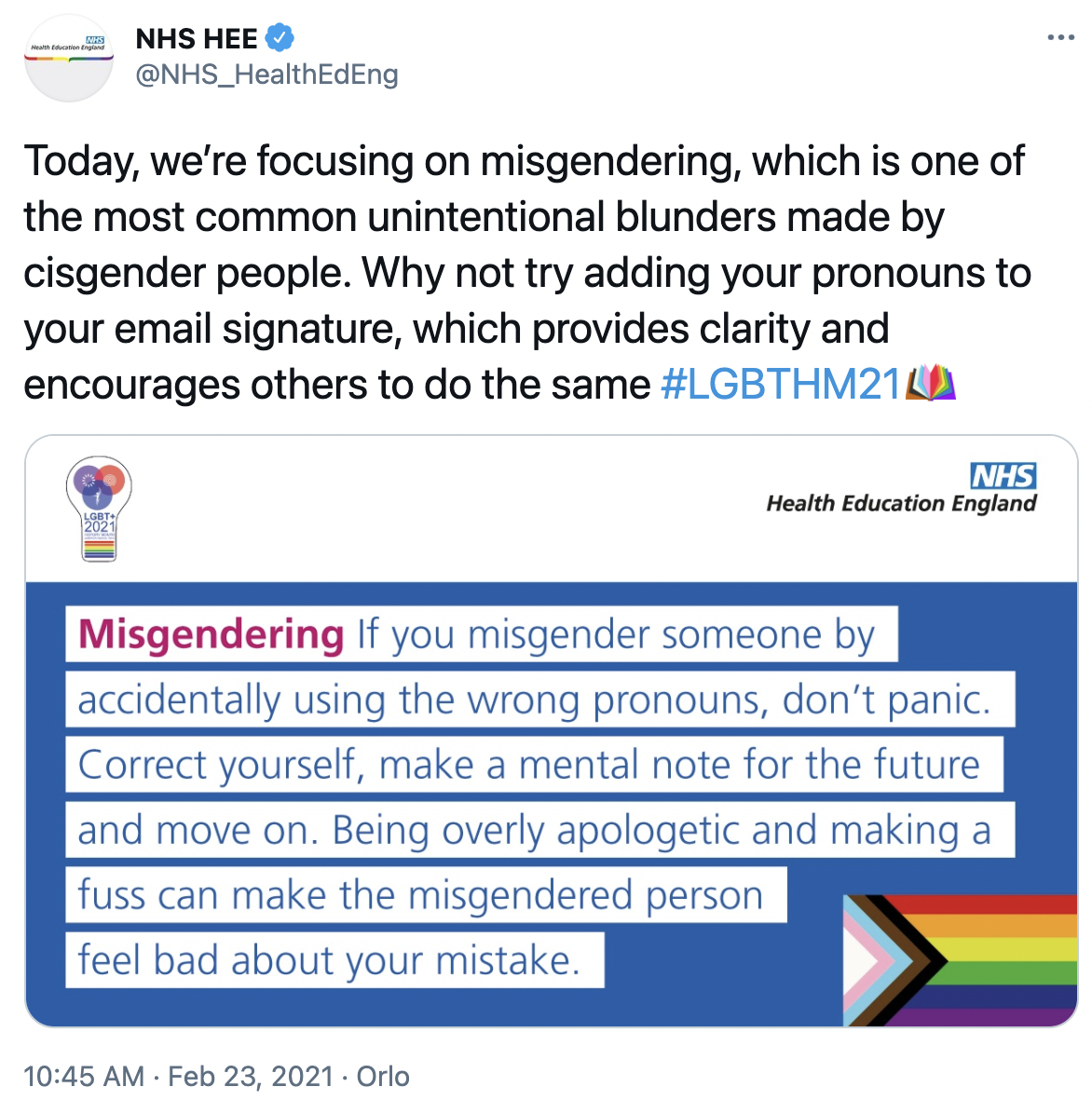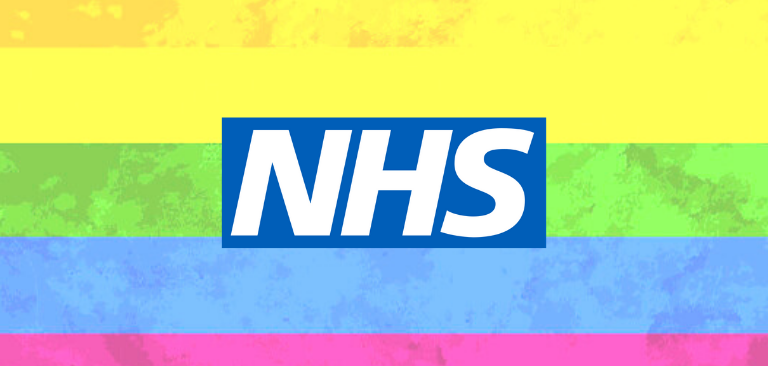The NHS is being blasted for telling employees to add their pronouns to the email signature to avoid “misgendering.” Critics claim the UK’s publicly funded health organization should be focusing on more important things.
The NHS Health Education England (HEE) chose to focus on the issue of misgendering. The HEE tweeted:
“Today, we’re focusing in misgendering, which is one of the most common unintentional blunders made by cisgender people. Why not try adding your pronouns to your email signature, which provides clarity and encourages others to do the same.”

“Cisgender” is a term trans activists use to refer to non-trans people.
The tweet also featured an image further explaining misgendering. The text on the image read:
“If you misgender someone by accidentally using the wrong pronouns, don’t panic. Correct yourself, make a mental note for the future and move on. Being overly apologetic and making a fuss can make the misgendered person feel bad about your mistake.”
The tweet caused a heated debate online, with most people blasting the NHS for focusing on unimportant things.
Piers Morgan, the host of Good Morning Britain, wrote: “Is this really what you should be ‘focusing on’ at such a critical stage of a global pandemic?”
“Or maybe the NHS – as the vast majority of its staff are – should be focusing on vaccine rollout, covid patients & those suffering from non-covid illness… rather than what pronouns we should be using to avoid causing offence?” Morgan added.
For inclusivity purposes, many businesses and corporations have been pressured into encouraging their staff to add their preferred pronouns to their email signatures.
“We don’t want to exclude anyone from being a nurse, a doctor or any of the 350 plus professions in the NHS, if they have the skills, compassion and drive we want them and will do what we can to make them feel at home,” said the HEE’s Director of Corporate Accountability and Engagement, Lee Whitehead.
“The NHS cares for everyone so our workforce needs to include everyone. Supporting LGBTQ colleagues helps them feel the NHS is a place they want to work, and that can only be good for patients,” Whitehead added.













